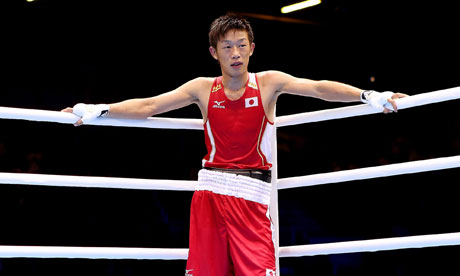It is, of course, not an issue limited to the amateur game - the professional ranks is just as prone to bad calls from the ringside adjudicators, Manny Pacquiao's loss to Timothy Bradley perhaps the most visible example in recent months. Furthermore, it isn't a new issue by any means: Roy Jones Jr. famously found himself on the wrong end of the sport's most infamous hometown decision, while closer to home Joe Ward was forced to deal with a similarly biased call. The question, really, is what can be done about it?
After all, from loaded gloves to fixed fights (and just about everything in between) boxing is hardly renowned as a fair or even-handed sport. Frankly, even a committed fan of the sport - like myself - would have to say it stinks to high heavens. The expectation that it will suddenly rise from its murky past and become a whiter-than-white picture of piety is, in short, ridiculous. It will require a concerted effort to make the boxing even vaguely more acceptable as an uncorrupted and honest game.
First thing that needs to happen is the scores being updated live, on-screen, for everyone. This is just a question of transparency: if we can see the points being totted up as it happens, we'll be a lot more accepting of close calls than right now, as the scores revealed 3 minutes later could have been compiled in any number of ways. Its not just better TV - its better regulation too, better policy in an effort to minimise the occurrences of situations like last night's.
 Secondly, the number of judges should go up. How high, it hardly matters, but with every new pair of eyes involved, the margin for error is reduced. The unfortunate truth is that it remains entirely subjective, at the mercy of human error, sight lines and yes, an amount of audience pressure too. It would be silly to believe that a partisan crowd wouldn't have some sort of effect - it is sillier to not recognise the possibility and reduce the likelihood of it happening. 3 of 5 judges might make the same errors - the chance of 5 of 9 doing so is lower.
Secondly, the number of judges should go up. How high, it hardly matters, but with every new pair of eyes involved, the margin for error is reduced. The unfortunate truth is that it remains entirely subjective, at the mercy of human error, sight lines and yes, an amount of audience pressure too. It would be silly to believe that a partisan crowd wouldn't have some sort of effect - it is sillier to not recognise the possibility and reduce the likelihood of it happening. 3 of 5 judges might make the same errors - the chance of 5 of 9 doing so is lower.Short of strapping the boxers to wires and scoring it like fencing, there is little opportunity to change how we score fights. As long as men step inside the squared circle, there will always be debate, always a cause for conjecture and controversy. Of that there can be no doubt - the question is whether the IOC, IABA and other powers that be really care. If they do, there are steps to be taken to help the sport become that much more transparent and fair - if they don't, then prepare for plenty more shocks in the coming years.


No comments:
Post a Comment